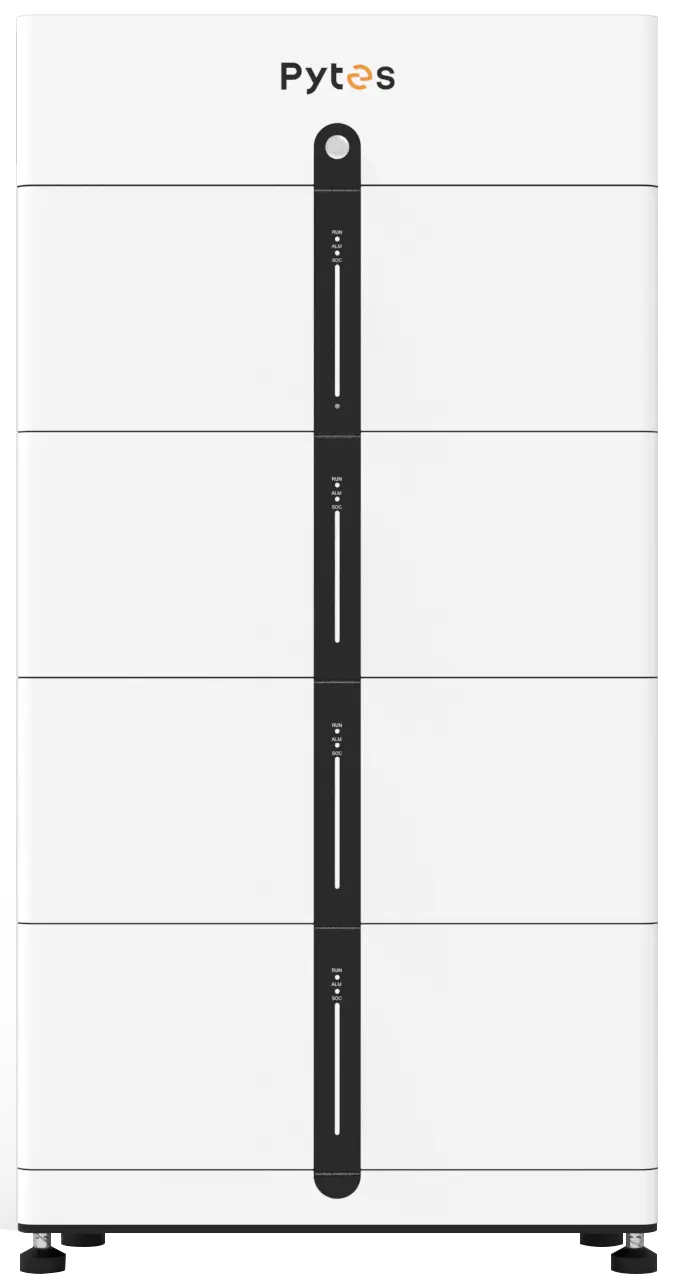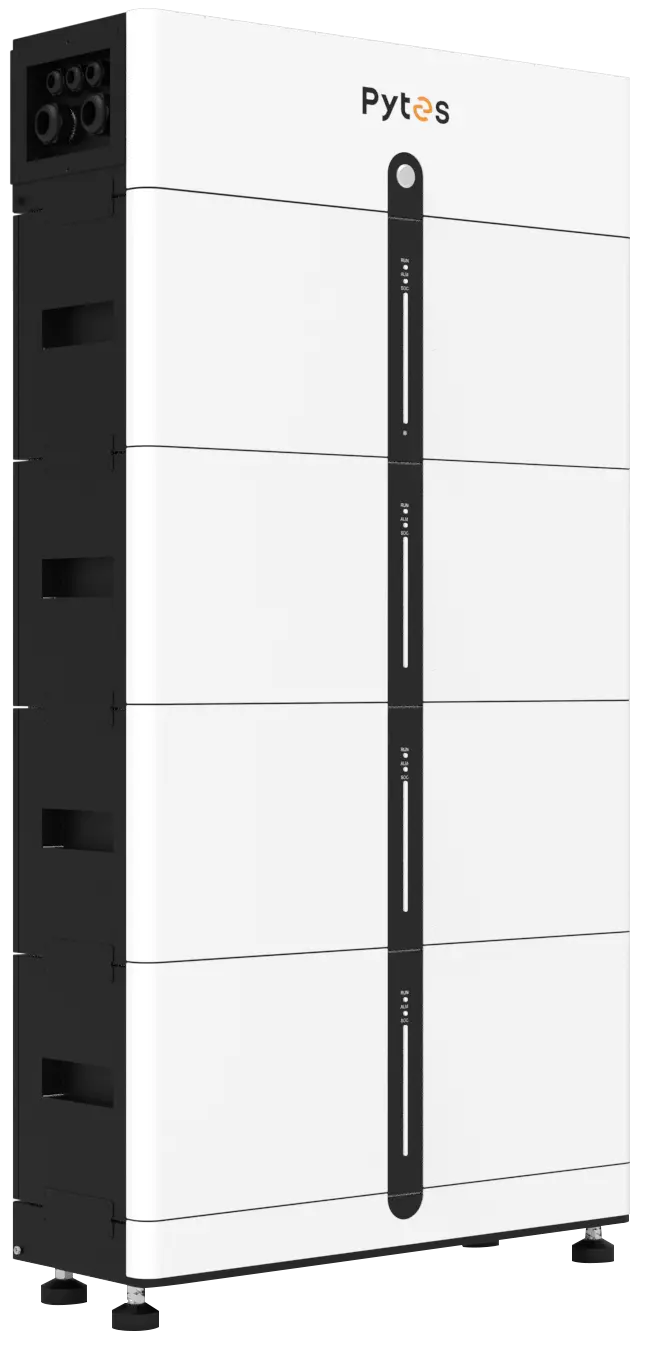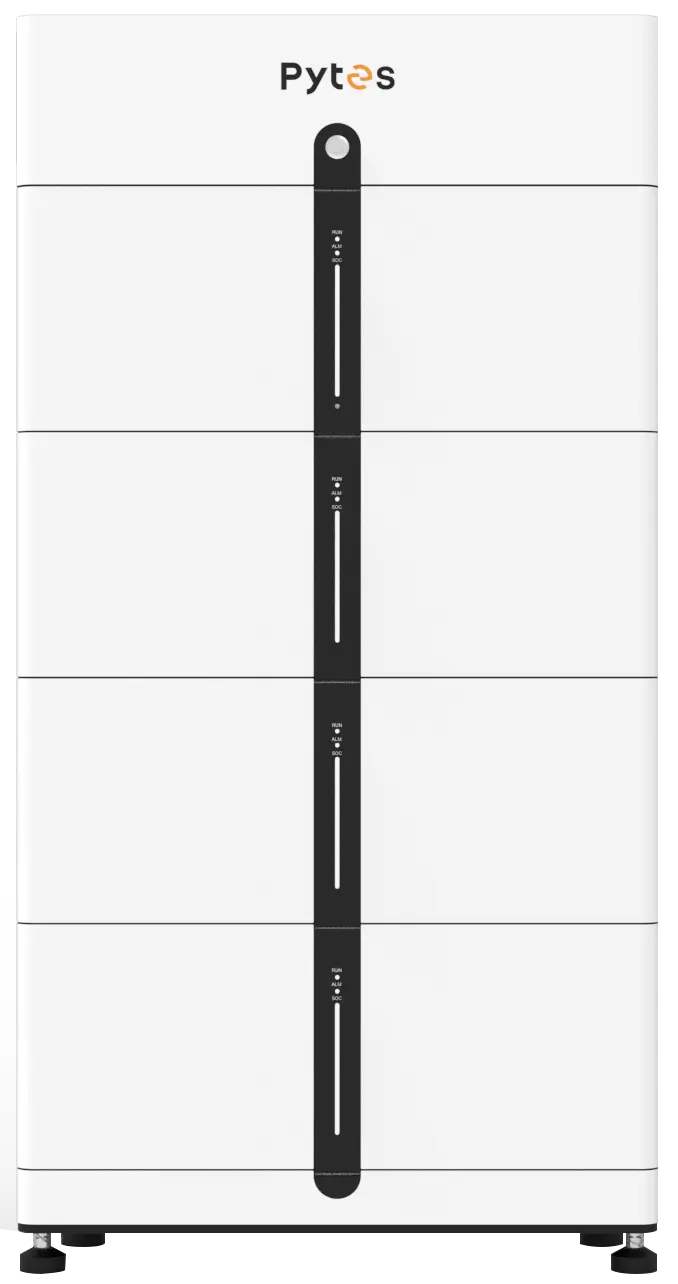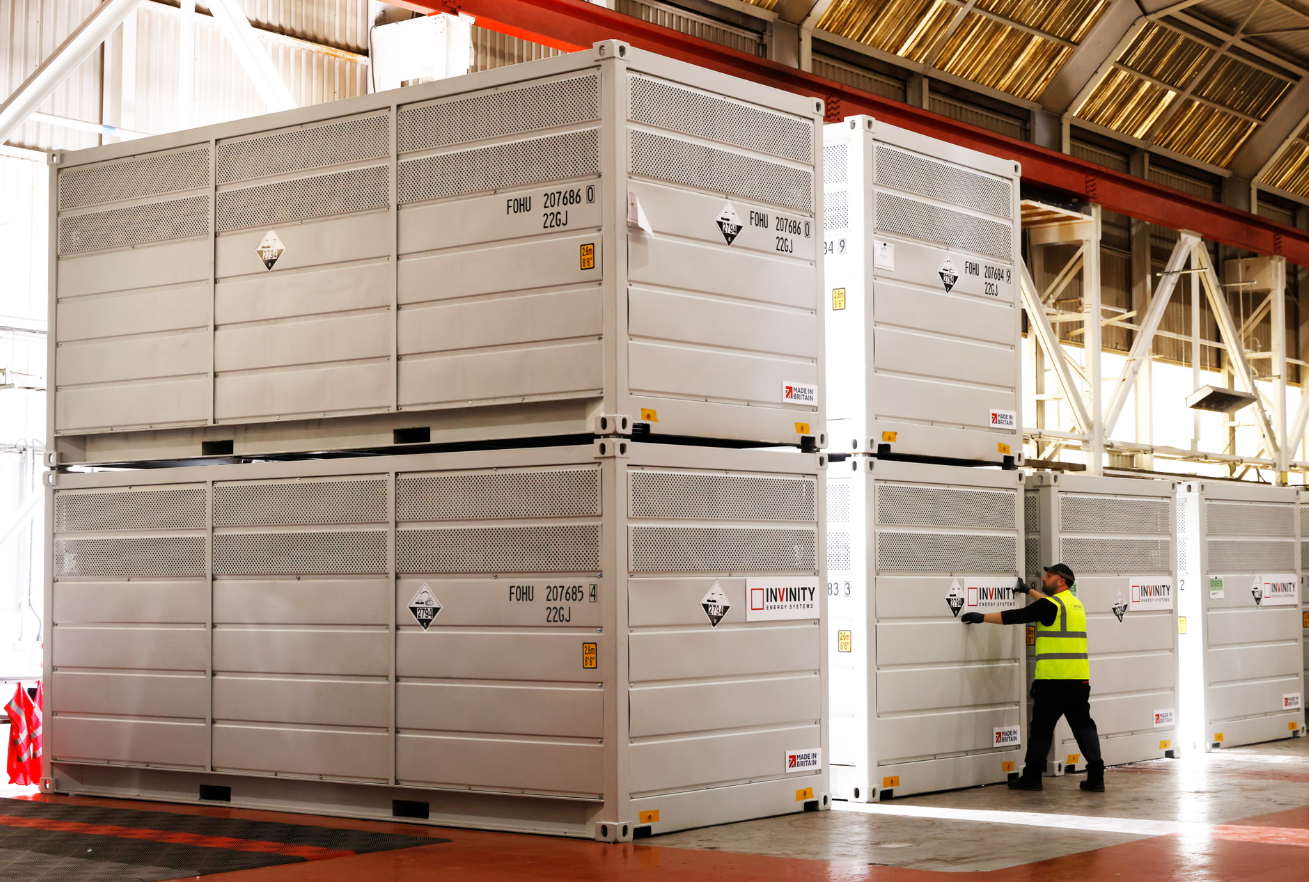Solar energy has become a major contender in our search for sustainable energy solutions. As homeowners increasingly adopt solar power, the need for reliable battery backup becomes critical. As an energy storage solution provider, Pytes has launched Pytes Pi LV1 - a stackable lithium iron phosphate (LFP) battery. In this blog post, we will take an in-depth look at the benefits and features of solar backup batteries, as well as introduce you to the relevant features and benefits of the Pytes Pi LV1.
a. Purpose and Function:
Solar energy backup batteries, also known as solar storage systems or solar batteries, store excess energy generated by solar panels during peak production hours. These batteries then release the stored energy when sunlight is insufficient or during power outages, ensuring uninterrupted power supply to the household.
b. Types of Solar Energy Backup Batteries:
There are various types of solar energy backup batteries available, including lead-acid, lithium-ion, and saltwater batteries. Each type has its own advantages and considerations, such as lifespan, efficiency, and cost. It is important to choose a battery that best suits the specific needs and requirements of the household.

For those seeking energy independence, a backup battery solution is a significant investment.
But with few blackout protection options, another option most homeowners consider is a generator. These are much cheaper, but have 3 significant disadvantages.
1. Continuous use of carbon-based fuels, such as gasoline;
2. Difficulty in fuel storage;
3. Duration limit.
Battery backup options for solar systems provide grid protection. Additionally, there are numerous incentives to help homeowners and businesses, such as the 22% federal Investment Tax Credit (ITC) and the Self-Generation Incentive Program (SGIP).
1.Uninterrupted Power Supply:
Solar energy backup batteries provide a reliable source of power during grid failures or when solar panels are unable to generate electricity due to weather conditions. This ensures that essential appliances and devices continue to function, minimizing disruptions to daily life.
2.Power supply all night
When you go solar, you'll switch to Net Energy Metering (NEM) billing. Regardless of your previous billing rate, when you earn NEM, you will be on a time-of-use (TOU) plan. This billing plan is when electricity is cheaper and more expensive during certain times of the day. When your solar system is not producing electricity at night, when electricity is most expensive, with battery backup, your solar panels can store the electricity produced during the day when electricity is cheapest. And extract electricity at night when electricity is most expensive.
3. Avoid demand charges and price increases
Utilities like Southern California Edison and San Diego Gas & Electric raise rates every year and switch their customers to time-of-use billing. The cost of electricity is rising year by year, and energy costs are increasing. With a battery backup solution, you can lock yourself in to lower energy prices and avoid peak charging.
4. Monitor energy generation and consumption
Your battery backup solution will give you a higher level of monitoring capabilities. When you install solar panels on your home, you will see how much energy the panels produce at a given time. With a battery backup solution, you'll be able to see your home's production and usage in real-time.

Setting up a battery backup system is a smart and proactive way to ensure uninterrupted power during a power outage or emergency.
1. Assess your power needs:
Before setting up a battery backup system, it is critical to determine your power requirements. Consider the appliances, appliances and equipment you want to connect to your backup system. Calculate their power consumption to estimate the capacity of your required battery backup system.
2. Choose the right battery:
Choose a battery that fits your power needs, preferences and budget. Common battery types for backup systems include lithium ferro phosphate batteries (LFP) such as Pytes Pi LV1 or Pytes V5°, lithium-ion (Li-ion) and nickel-cadmium (Ni-Cd) batteries. When choosing, please consider factors such as capacity, voltage, cycle life and maintenance requirements. If you need it, please refer to the battery solutions provided by Pytes.
3. Determine system configuration:
Next, decide whether you want a stand-alone battery backup system or an integrated system that works with an existing power source, such as solar panels. Stand-alone systems rely solely on battery power, while integrated systems combine battery power with solar or grid power to provide uninterrupted power.
1.Pi LV1: Compact and Easy Installation:
One of the key advantages of Pytes Pi LV1 is its compact design, making it ideal for homes with limited installation space. The Pi LV1 can easily expand the capacity of your backup power up to 30.72kWh max, allowing homeowners to stack batteries on top of each other effortlessly. This scalability ensures that you have enough power to meet your needs, even during extended power outages.
Furthermore, the Pi LV1 boasts a hazard-free LFP battery design with a robust structure. Its field-proven BMS in the individual module ensures optimal performance and safety.
2.Plug-and-Play Installation:
Installation time and complexity can be major concerns for homeowners. However, Pytes' Pi LV1 addresses these concerns with its plug-and-play design. It incorporates an installer-friendly quick connector, eliminating the need for hand-wiring. This streamlined installation process enables homeowners to complete the setup in just 15 minutes. The compact footprint and reduced weight of the Pi LV1 further contribute to its ease of installation.
3.Scalable on Demand:
The modular design of the Pi LV1 enables flexible configuration based on demand. Each stack's capacity can range from 10.24 to 30.72 kWh, providing a versatile and scalable energy storage solution. With the capability to extend the system to a total of 122.88 kWh, the Pi LV1 ensures you have enough storage capacity to meet your energy needs now and in the future.
4.Smart Monitoring and Upgrades:
Pytes' specialized Smart Monitor is an integral part of the Pi LV1's functionality. It enables real-time operation monitoring, allowing homeowners to keep track of their energy storage system effortlessly. The Smart Monitor also facilitates seamless remote upgrades, minimizing subsequent after-sales issues. This feature ensures that homeowners can benefit from the latest advancements in battery technology without the need for costly and time-consuming manual upgrades.

In conclusion, Pytes Pi LV1 offers an innovative and reliable solution for solar energy backup batteries. With its compact design, easy installation, and modular scalability, homeowners can enjoy uninterrupted power supply during outages or when solar panels are unable to generate electricity. The Pi LV1's plug-and-play installation and Smart Monitor feature further enhance its usability and convenience. By investing in a solar backup battery solution like Pytes Pi LV1, homeowners can achieve energy independence, avoid demand charges and price increases, and monitor their energy generation and consumption in real-time.
Pytes (USA) ENERGY, INC., Since 2004, we have been at the forefront of residential energy storage solutions. Pytes Pi LV1 is one of our products dedicated to helping homeowners achieve energy independence and conserve energy.
You are welcome to browse our website or contact us to learn how we can provide you with efficient and reliable solar energy backup battery system solutions and provide you with professional installation guidance.
Website: www.pytesusa.com
E-mail:pytesusa@pytesgroup.com
Should You Get Battery Storage for Your Solar Energy System in 2024?


